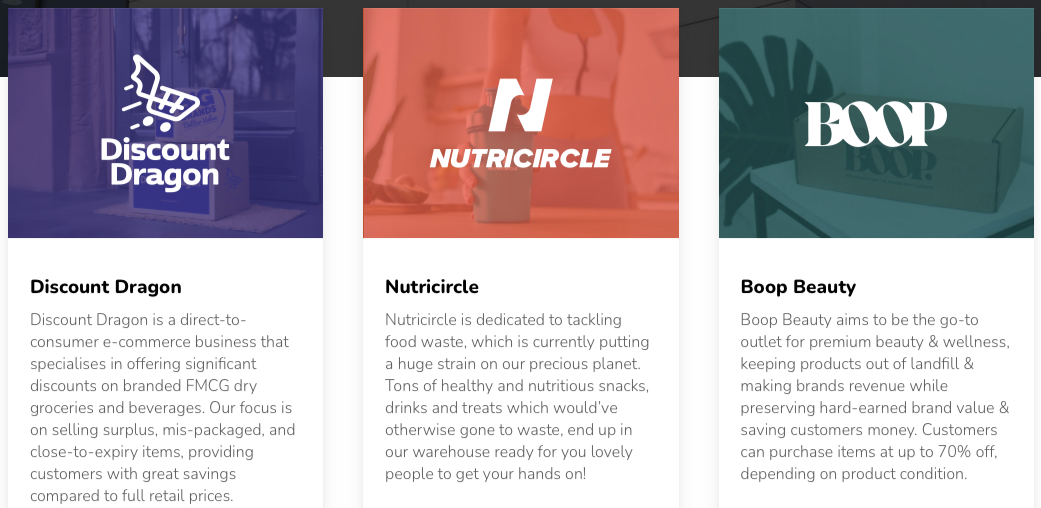Huddled Group - An expanding e-commerce business development company with the potential to thrive in the current economic climate
Management track-record in developing innovative businesses
Huddled Group - An expanding e-commerce business development company with the potential to thrive in the current economic climate
12 Nov 2024
884
Myles McNulty_
Other
Huddled Group PLC
Huddled Group has a solid track record in establishing innovative businesses. building value and often exiting them for significant gains. With three core e-commerce businesses in play and revenues on the up, will they do it again?
Huddled Group #HUD has been creeping up over the past week, and now sits near the top of the range that it's been trading in for the past 18 months. I think a breakout is imminent.
@huddledgroup owns three direct-to-consumer e-commerce businesses, all of which specialize in buying surplus stock from their respective industries of focus at extreme discounts to the retail price, and then selling that stock at (slightly less) deep discounts to their own customers.
The businesses acquire stock through taking on items that are approaching their "Best before" dates (that supermarkets would not take on): that are held in large surplus in the supply chain (be it by producers / packagers / wholesalers / retailers); that have incorrect or damaged packaging; that may have undergone a brand change after entering the supply chain, etc.
The three businesses are as follows:
- Discount Dragon (discountdragon.co.uk) - acquired for £3.95m (100% of consideration paid in shares at 2.64p) in August 2023. Specializes in branded fast-moving-consumer goods (food, alcohol, cleaning products, etc.).
- Nutricircle (nutricircle.co.uk) - acquired for up to £0.3m (up to £0.2m cash, £0.1m shares) in April 2024. Focused on foods for healthy and specialized diets.
- Boop Beauty (boopbeauty.co.uk) - 75% stake acquired, for a modest undisclosed sum ("roughly equivalent to the value of stock on hand, with a commitment to inject further capital for growth") in July 2024.

Discount Dragon is currently the largest of the divisions, accounting for circa 80% of group revenue at the present run-rate. As at end September, that run-rate was circa £1m per month; and the division had just move into a modest operating profit in the last two weeks of that month. DD is growing sales at an extraordinary rate: in August 2022, it recorded sales of only £75k for the month; this had increased to £450k by August 2023.
In FY 2023, Nutricircle (formerly known as Food Circle, before HUD rebranded it) recorded revenue of £1.24m, and a net loss of £46k. In just the month of September 2024, the division recorded revenue of £225k and moved into a "modest operating profit".
The final division, Boop, was relaunched on 12 September, and recorded £25k in sales in the three weeks to month-end.
The approximate annualized revenue run-rates at end-September for the three businesses were therefore: £12m for DD; £2.7m for Nutricircle; £0.5m for Boop; £15.2m for the Group.
All three divisions have now been relocated into a single warehouse in Leigh, UK, which will result in significant synergies and resultant margin boost.
Presently, the operation can deliver up to 40k parcels per month. Assuming an average order value of £40, that's annual revenue of up to £19.2m pa. Evidently, the combined businesses are rapidly approaching max capacity, and so it is very welcome news that HUD has secured an agreement with its landlord to double the operational space at the warehouse, with expanded operations commencing February 2025.
DD and Nutricircle had both achieved subsidiary level profitability (albeit very modest - presumably 1-2% in EBIT margin) by end September. Net cash stood at £2m, and inventory £1.8m. Management was keen to stress that those existing cash resources will be sufficient to take the company through to cash flow positive next year, and that it does not intend to raise further cash via equity for the foreseeable future.
Given the recent transitions to profitability at operating level in its larger two subsidiaries, I suspect that HUD would be able to secure access to a sizeable revolving credit facility from a bank, if required to accelerate expansion (notably, purchasing of inventory).
[Confidence in the company's future (and in the strength of its balance sheet!) was also strongly demonstrated by the CEO making multiple open market share purchases totaling £177k over the last 12 months, including £103k worth acquired only two weeks ago.]
The value?
The doubling of warehouse capacity - which comes online in 2-3 months - and assuming a £40 AOV, could push sales at max capacity to close to £40m pa.
Assuming a gross margin (including fulfillment costs, advertising expenses and warehouse personnel) of 12.5% to 15.0% (mgmt's stated target), that'd result in a GP of £5m to £6m. Less circa £3m for G&A and other PLC costs... and suddenly that EBITDA figure of £2m-£3m versus HUD's current mkt cap of £11.2m (and enterprise value of only £9.2m) looks highly appealing!
On a relative valuation basis, we must also consider Nordic peer, Motatos. Having launched in 2014, it hit revenues of €68m in 2021, €76m in 2022 and €90m in 2023. In 2022, it raised €38m in equity at a post-new money valuation of over €300m - despite being lossmaking in each of 2021 and 2022.
With regards to HUD, we can see that those investors in Motatos were happy to pay upward of 3x NTM Sales.
Even if we were to use a multiple of only 2x, that would suggest an enterprise value for HUD of £50m to £70m (I'm assuming sales grow to anywhere between £25m and £35m next year).
Clearly, HUD trades at a very substantial discount to this recent precedent transaction.
The Opportunity?
This exists for two major reasons:
1) HUD's change of business / three acquisitions have all been made in relatively quick succession (the last 15 months), meaning that the lay investor doesn't have a clear picture nor understanding of the group financials yet.
2) To compound on the above, no equity analyst is yet covering the stock. No forecasts are available in the market place, no commentary provided.
The key risk to the trade thesis is simply that HUD cannot achieve and maintain its gross margin targets. Scale will be one of the key determinants in the company's success (or failure). In this instance, HUD is in a fortunate position that the cost of living crisis in the UK very much endures, and moreover that we have a horribly left wing government now in charge who could well whip up taxes even further in the coming years. HUD's offering should become increasingly sought after as word spreads, one would think!
Assuming a successful calendar year 2025, then it is simple to envisage HUD moving to much larger premises altogether, in 2026. £19bn worth of food is wasted each year in the UK, and around £3.5bn worth of beauty products are thrown away. The market is clearly there.
If HUD gets it right (i.e. hits its margin targets!), the sky is the limit for the company. In my view, it's one of the few UK micro-caps positioned to really thrive in the current economy and under this wonderful new government.
Content Contributed by Myles McNulty

